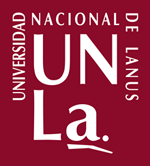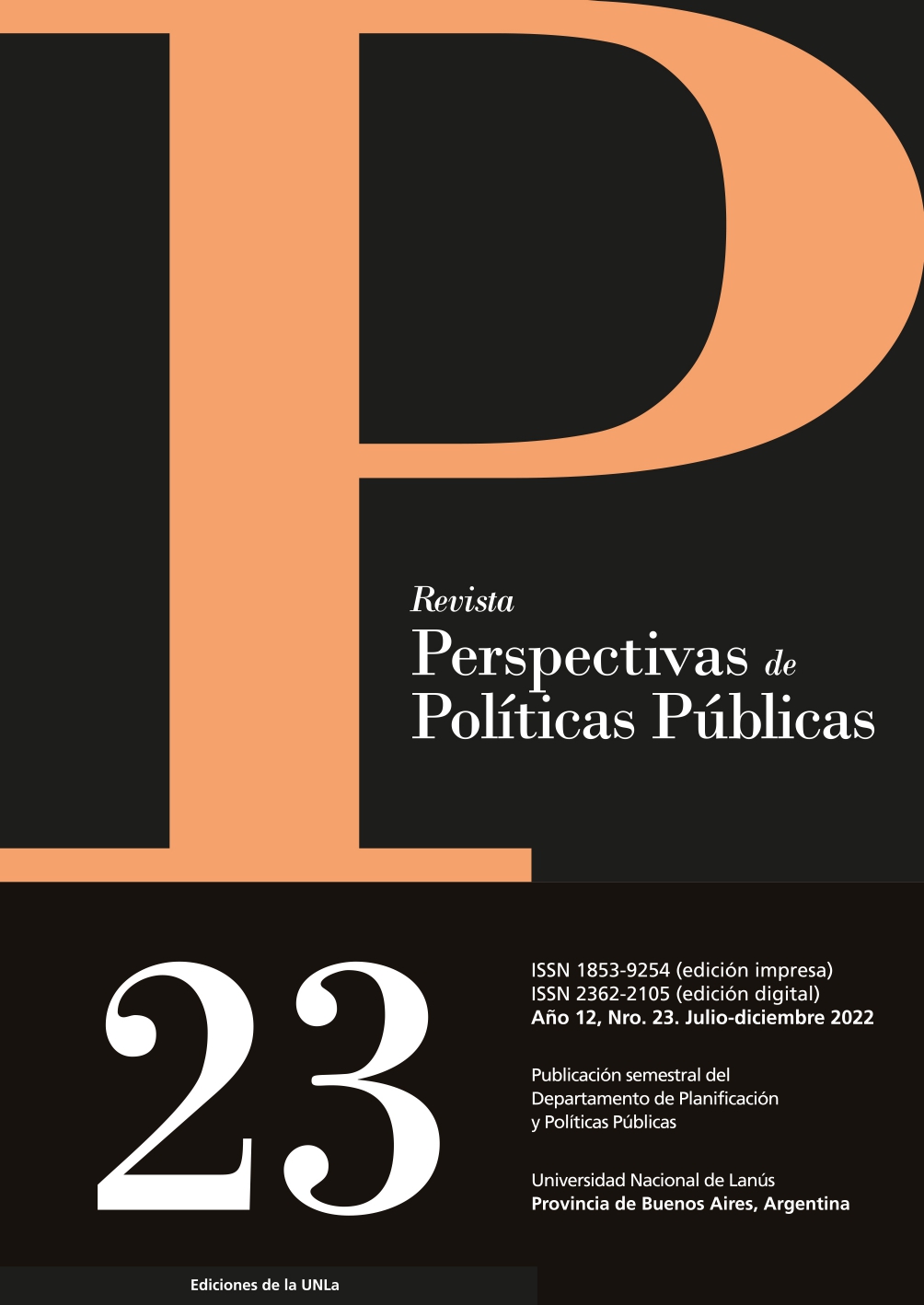Editorial
Abstract
This issue of the RPPP begins with a work by Federico Lorenç Valcarce on the impact of the pandemic on the functioning of the security forces during it, particularly during the period of mandatory isolation and the limitations on the mobility of people. Martín Carné presents a case study on the National Land Production Program aimed at financing and land qualification by provincial and municipal states for housing purposes; a program that took its first steps when the pandemic was just beginning. Starting from a review of the literature and the Argentine historical experience, Joseph Palumbo proposes a broad conceptualization of housing policy in order to renew the research agent of the social sciences on this topic. Martín Aguerre, Gustavo Acciaresi and Gerardo Andrés Denegri pay attention to the evolution of the forestry-industrial activity in the province of Jujuy and its relationship with policies of promotion and intervention of the State in the different links of the productive chains. The article shows the relevance of strategic planning in the development of the activity and the setback that it experienced as this planning was abandoned due to the change in orientation of public management. The text by Ana Clara Carro describes and analyzes the process of federalization of science and technology carried out by the Federal Council for Science and Technology (COFECYT), aimed at solving socio-productive problems and decision-making by each province. from the allocation of resources, while pointing out the tension that arises between that decentralization and the choice of truly equitable criteria for the deconcentration of resources. Daniel Comba presents a current state of the policy design approach developed by US public policy analysis and the contributions from some neo-institutionalist perspectives, pointing out the points of agreement as well as their achievements and limitations. Alberto Arellano Ríos, Santos Joel Flores Ascencio and Roberto Iván Piedra present a case study of a program of the federal government of Mexico for qualitative and participatory evaluation of the beneficiary population of the goods and services generated by the analyzed program.






